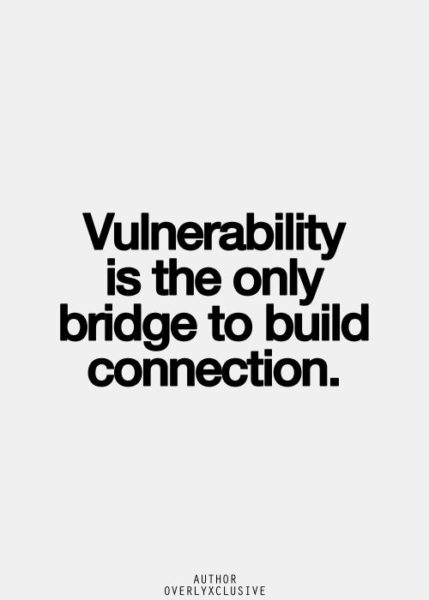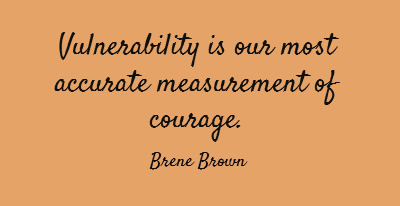I’ve been feeling pretty distraught about the family drama happening of late so I don’t really feel up to writing much of an introduction and I think I might take off for the Easter holiday. Lot’s of cooking to be done!
Don’t forget about Erik’s Hour of Enlightenment radio show tomorrow at 5:00 PM PT/7:00 PM CT/8:00 PM ET. No more than 15 minutes before the top of the hour, call 619-639-4606 to ask Erik your question. There are three ways to listen: Listen on the phone line, click on the “Listen” icon on the right sidebar of the blog or click on this link: http://goo.gl/aFHTzJ Tonight’s topic: LIVING DELIBERATELY AND WITH INTENTION.
I think other than emotional honestly, this subject is one that is most dear to Erik’s heart.
Me: Okay. Talk to me about vulnerability, Erik. What is its importance in relationship to connection, etc.?
Erik: That’s a great holiday topic right there.
Me: Oh, good. Ho, ho, ho!
Erik: Yeah, you should really just kind of save it and type it up for Christmas.
Me: Okay.
Of course I totally disobeyed his command.
Erik: The importance of vulnerability. It’s the same as the importance of eating, but it’s funny when we put it in those terms, because people get a little pissed. They think,” Really? Because it’s not that tangible. If I stop eating, I’ll die.” Well, people who choose not to be vulnerable die a little, too.
(Pregnant pause)
Jamie: He’s situating himself on the couch.
Me: Probably adjusting his package.
Jamie guffaws.
Me: You know you always used to do that, Erik.
Jamie sighs.
Jamie (to Erik): Don’t! I don’t want to know that, Erik! Nope. Switch topic.
Me: What? What’s he saying?
Jamie: Telling. Sharing too much.
Me: Huh?
Jamie: Sharing too much about a topic.
Me (fussing at him): What is it, Erik?
Erik: Just how it’s so big, it gets tangled in odd places, so I have to straighten it out.
Me: Well, that is true. I remember accidentally seeing him pee in the Bahamas, and I was pretty shocked.
Jamie (giggling): I don’t think you’re supposed to be saying that.
Me: Who, me?
Jamie (laughing hard, now): Yes!
Me: Oh, sorry. I’m a doctor, so this kind of stuff is natural to me. It’s just the body, you know. But he was always very proud of his junk.
Erik: Yes, I did not have to hide.
When will we ever get on track? I guess this was meant to test Jamie’s vulnerability.
Me: Okay. Go ahead. Talk to me.
Jamie (sighing): Importance of vulnerability.
Erik (laughing): Is to have a big dick.
Jamie and I chuckle. Enough already.
Erik: Nah, seriously. When you start to withhold, whether it’s information that you’re embarrassed about or it’s emotions that you wished you didn’t have or just don’t know how to comprehend, don’t know how to accept—or even this, Mom: If it’s an emotion that you’re going through but that you’re denying—you know how people do that. That’s an awesome American trait where people say, “No, you’re angry,” and they go, “No, I’m not angry. I’m just a little upset; I’m just disappointed. I’m fine.”
Jamie: He’s making very awful whiny, girlie voices.
Erik (teasing): Yeah, because you know it’s only the girls that lie.
Me: Yeah, right!
Jamie (to Erik): You’re so full of it.
Erik: Even those who are doing it subconsciously and not consciously kind of ruin a person’s energetic balance. Vulnerability is not the same as being honest. Truth, right?
Me: Okay.
Erik: Cuz you can say your truth in words, but then completely lock down your emotions. So, vulnerability is that emotional honesty. It’s knowing, without a doubt, you can share yourself 100% and nobody can damage or hurt you no matter what. (Pause) So, why is it important? Doesn’t everybody dream about being a superhero, you know, where you can just be you and never get hurt? Now, I don’t mean that you’ll never get into a car accident or somebody won’t throw a punch to your face. I’m not talking about that kind of hurt. I’m talking about, um, I’m talking about embarrassment. I’m talking about blackmail.
Jamie (laughing): Yeah, because blackmail is a part of everybody’s day?
Erik: Well, cuz people are embarrassed about how they react or how they feel and fear of judgment. Imagine having a life where you’re not worried about being judged! That’s what emotional vulnerability can do for you. So, when you lay it all out there, emotionally, you have to get used to how to handle it. It comes with other traits like, “Oh, —
Jamie (laughing): This is the one thing I like about Erik. He’ll talk to you, and then he’ll quickly pretend he’s somebody else to put the point on the topic.
I chuckle in acknowledgement.
Jamie: Like this. Like—
(Pause)
Jamie (to Erik): Oh, well start over, then. (pause) I didn’t screw you up! (pause) You shouldn’t listen to me, then! You should remember where you are!
I can’t help but laugh at this sibling like squabble.
Jamie (still needling Erik): Well, just pick up somewhere else!
Jamie: Aahhck! Oh, fine! He’s asking you what he was just saying.
Me: Ah oh.
Jamie: I know. I can’t remember either, that’s the funny thing. Let’s see. Comes with other lessons like responsibility? Lay it on the table? Or is your responsibility? What belongs to others? I can’t remember what he was telling me before we got off track, but then he was doing the funny voice like, “Oh, I didn’t know that I was responsible for that.” Like a dumb surfer dude voice.
Erik: Oh, yeah. But we often think that the way we behave is what’s going to create a reaction in someone else, and that’s when we get trained into being pleasers. We wanna keep the energy and the environment smooth. Well, smooth doesn’t necessarily equal good, so why the fuck do we have it memorized like that? Oh, I remember. Cuz we were taught that shit by our parents and by the schools. Thanks dudes. That’s changing, though. That’s changing with the new set of parents.
Me: That’s what one of my books was about. Raising Children Who Think for Themselves. It teaches parents how to raise kids who are self-directed, who don’t become approval seekers and who can make decisions based on their own sense of right and wrong instead of what will win them outside acceptance.
Erik: Everyone should read that book, Mom. Parents and authorities and even teachers, you know, are starting to ask, “What do you feel?” “What do you need?” And then it’s, “Well, Johnny doesn’t like that, but you need it; you like it, so that shouldn’t change who you are.” They’re teaching that it’s okay to have all of these differences in the same room, because they can actually embrace each other. Now, if you’re the first person to be vulnerable—
Jamie (to Erik, whispering): Oh my god, Erik. (pause) I’ll say it. I’ll say it.
Erik: If you’re the first person in the room to be vulnerable, that doesn’t make you the fag in the room.
Jamie (to Erik): Sorry. Maybe you want to change that. (pause) Because we don’t use that anymore! (pause) Oh my god, no! That is NOT an example! He goes, “Look what you’re doing. That’s an example, trying to please—“
(Pause)
Jamie (to Erik): No! That is NOT an example. You’re trying to reach certain readers. (pause) No, you can’t use “queer” either. It’s the same thing. (pause) Okay, fine. Retarded. Whatever.
Me: How about “pussy”?
Erik: Love it.
Jamie: Next. Let’s keep going. He loves it.
Erik: It doesn’t make you a pussy. Right. It doesn’t make you the stupid one, the weak one—
Jamie (to Erik): Oh my god. See? You can’t (pause) Thank you. (in an excited, high-pitched voice) THANK YOU!
Me: Huh?
Jamie: Oh, he just said fine, that he heard me. He would not use the word “fag” anymore. He agreed.
Me: See? He can learn!
Jamie (to Erik): Look at that! It’s because you sat up and listened to your mom, man!
Me: There we go! I love you so much, Erik!
Erik (throwing noisy kisses): Muuaah!
Jamie: Plus he didn’t mean that as a derogatory term toward gays anyway. He’s not that way.
Me: Of course he’s not. He’s never been prejudiced.
Erik: I know, I know. Let’s get moving. So, if you’re the first one in the room to open up, that doesn’t make you the pussy. That doesn’t make you the weaker one. Now, it will kind of set you aside. You will be different. But within the lesson, what you’re learning is that different is acceptable. Different is what is needed. All these differences—that’s like finally getting rid of racism. Vulnerability gets rid of racism.
Me: How nice.
Erik: Because, you know, your vulnerability doesn’t have to be pleasing. It doesn’t have to fit. You could be being yourself, being true, and that’s what’s needed to create harmony. It’s all that warped lying and crap and shit that’s out there—that’s what hurts so bad.




